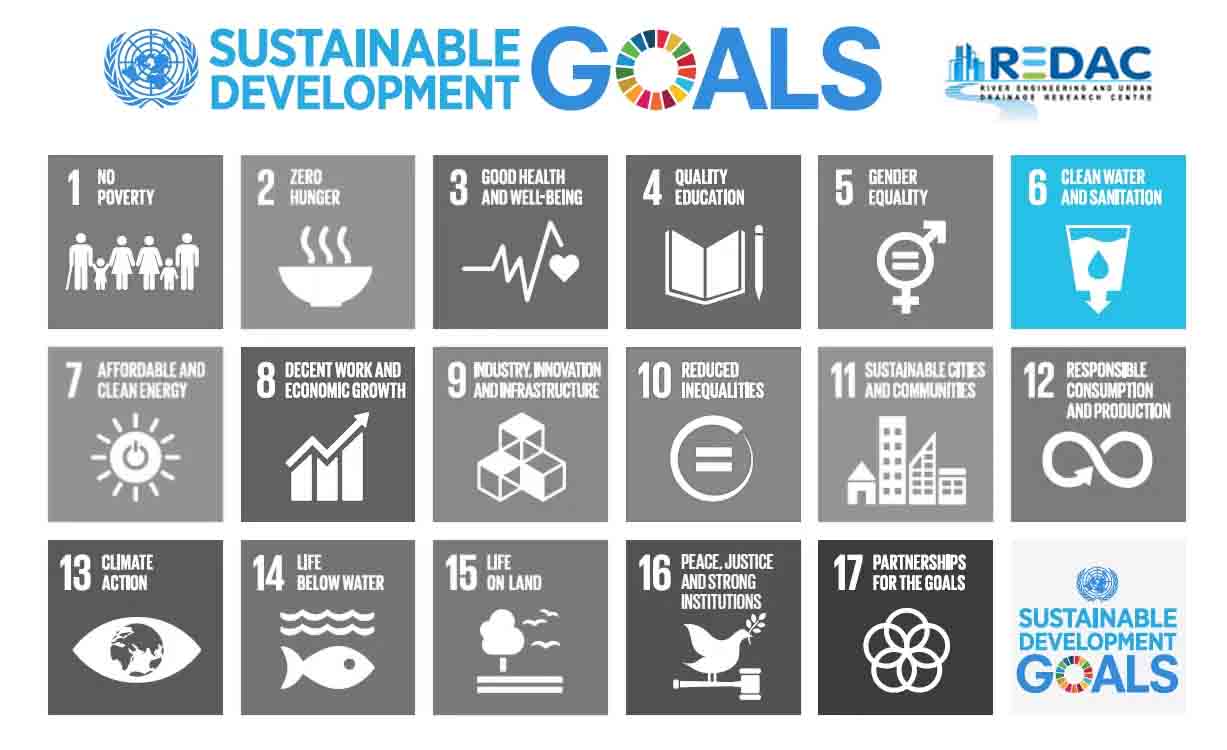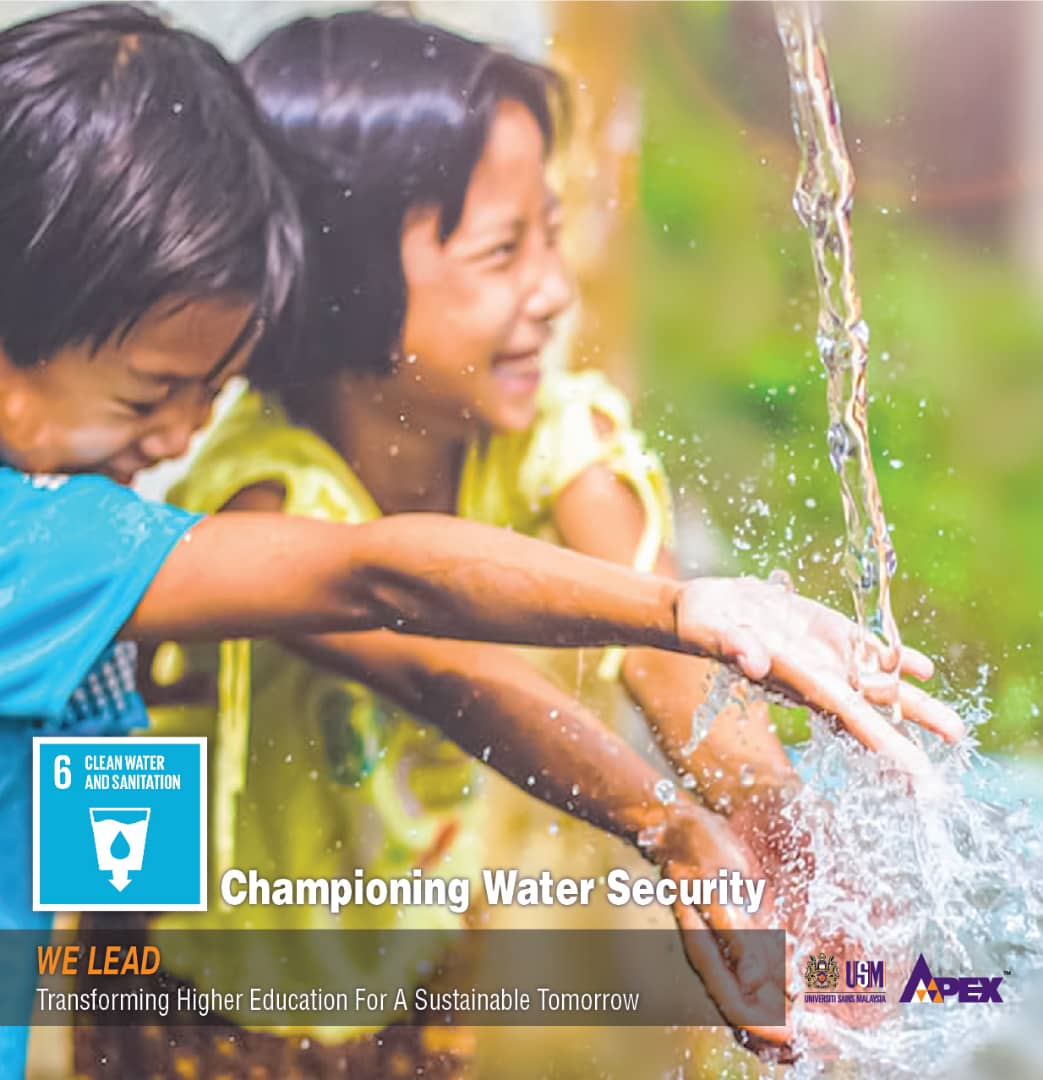USM IS MALAYSIA’S FIRST UNIVERSITY AWARDED UNESCO CHAIR FOR SDG6 IN ASIA-PACIFIC REGION
PENANG, 5 December 2020 - Universiti Sains Malaysia (USM) become the first university in the country to be awarded the “UNESCO Chair on Ecohydraulics for Sustainable Water Infrastructures for SDG 6 in the Asia and the Pacific Region”.

The Chair will be hosted specifically at the USM River Engineering and Urban Drainage Research Centre (REDAC) covering the period of 4 years.
With USM being selected for the water-related UNESCO Chair, the University is poised to become the international hub for education and research in sustainable water infrastructure.
USM will dominantly be serving Asia and the Pacific region, addressing issues relating to the access to clean water impacting over 663 million people.
SDG6 is the Sustainable Development Goal #6 established by the United Nations (UN) in 2015 which concerns with issues on Clean Water and Sanitation, with the mission statement to "Ensure availability and sustainable management of water and sanitation for all."

Selection for the “Chair” was done based on the proposal sent, and which has been favourably evaluated by the Selection Committee, as stated in the email from the UNESCO Chief (Section of Higher Education), Peter Wells who is based in France.
REDAC, which is located at the USM Engineering Campus in Nibong Tebal, is led by Professor Dr. Nor Azazi Zakaria, who is also the Director of the Engineering Campus.
It has been involved in the research on Sustainable Urban Stormwater Management since 1997 and was acknowledged as a HiCOE (Higher Education Centre of Excellence) in 2014.
It is currently involved in collaborations on related projects with various local and foreign partners from the public and private sectors.
Commenting on the announcement, Nor Azazi said that it is a privilege for USM and the country to be selected as the host for the prestigious international chair, and that will surely spur aggressive international collaboration towards water security and sustainable water infrastructure not only for the country, but also the world.
"Despite being deemed as a country with remarkable water management, with 92% of the Malaysian population having access to safely-managed water services and 82% to safely-managed sanitation services, we are still at risk if this important resource is not being managed responsibly.
"Water has long been a critical element to any civilization and all living beings are rightfully entitled to it. Yet, we still have marginalised groups which have been 'denied' access to clean water and sanitation. By hosting this Chair, we hope to lift the barrier and ensure greater access to it with no one being left behind," he said.
He added that, with 1 in 9 of the world population lacking access to it, there should be better monitoring and regulation of safety and distribution measures, in order to ensure that such a crisis would not lead to water stress in nations across the planet.
Additionally he said, currently out of 15% of the total water harvest from the yearly rainfall (85% of the water is flowing into the sea) in the country, 67% has been used for agricultural area for food production and only 33% is being used as potable water resource for industries and domestic.
The agreement between both parties was signed recently by the USM Vice-Chancellor, Professor Dr. Faisal Rafiq Mahamd Adikan and the UNESCO Director-General, Audrey Azoulay.
The Chair according to the agreement was established with the general objective of contributing to the overall development goals - social, economic and cultural development. More specifically, the objectives are as follows:
- To improve understanding of Ecohydraulics, and in this regards upscale existing local approaches in Integrated Sustainable Water Resource Management.
- To share experience and best management practices on climate risk management through lessons learnt from case studies in the Asia and the Pacific region, including disaster risk reduction and climate vulnerability assessment, and water education among countries, in particular water management curricula.
- To create a platform for collaboration and cooperation in the Asia-Pacific region as well as other regions for the establishment of strong and efficient Science Network to support the implementation of the 2030 Agenda SDG 6 especially.
- To improve the science-policy dialogue and develop a set of recommendations or policies for an improved water security in the country.
- To build a strong regional Science Network to promote interaction, training, knowledge sharing, joint activities, and transformation agent to upscale the quality of life in urban areas by providing sustainable water management system.
- To promote scientific researches and graduate studies in the field of Water Resources Management for talent development.
- Created on .
- Hits: 6346
